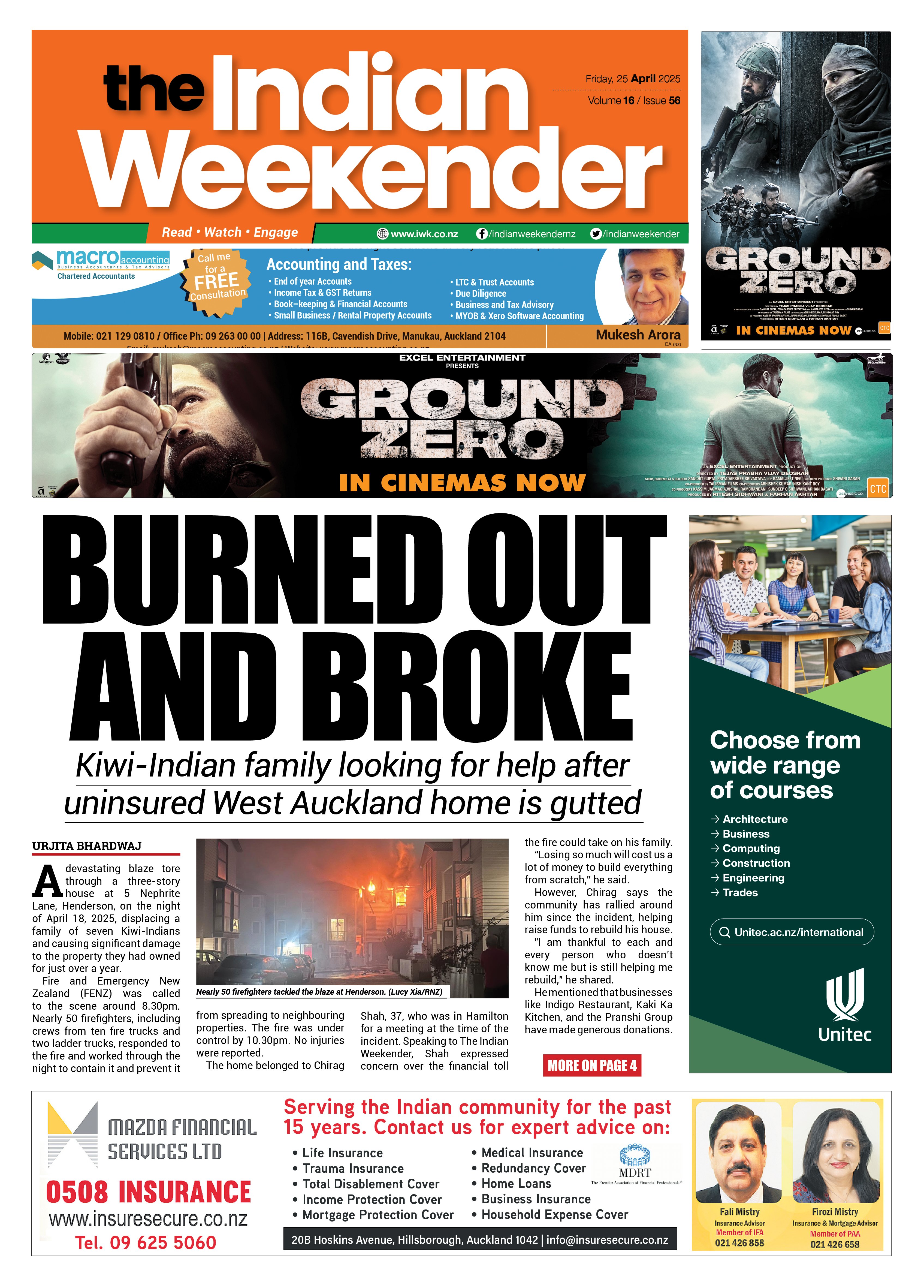A story of perseverance

They say that stories that inspire people most are stories from real life. Each of us experiences different challenges. The journey of migrants is always inspirational. Their stories talk about how they moved out of their comfort zone to make not only their own but also the life of their families better. But mostly these stories bring home the fact that we humans are capable of hard work and perseverance even under difficult circumstances to achieve our dreams.
This week’s Migrant Tales is such a story of a strong woman who did not let life’s challenges pull her back. She paved her way through in an unknown land among unknown people. Her story is about not losing hope, believing in yourself and achieving your dreams.
IWK: Tell us about your life in the country of your origin.
I was lucky to have been born in an affluent family. After finishing my schooling, I did my graduation and a Post Graduate Master's Degree. I got married soon after finishing my education. After spending a couple of years thereafter in Delhi, we moved overseas and have not gone back since then.
IWK: When and why did you move to New Zealand?
I lived in several countries with my family on an expat status. When my daughter was three, we realised we had to station ourselves permanently in a country to provide her with a stable environment. New Zealand topped our choices for a move and we applied for permanent residency under skilled migration category, which was approved.
Interestingly, we had moved countries since we had lodged our application. When we received the approval, it was a tough decision to leave a good career, business and a rather comfortable environment to an unknown place with no job—something we were not used to as we always lived on expat status, which itself was a luxurious lifestyle in those days.
IWK: How easy or difficult was life here for you in the initial years?
Moving to any new country poses social and cultural challenges, which we were quite used to, having lived in several countries. What was unusual was the professional challenge that we faced.
My husband, having worked in senior management positions in large multi-national companies, received more than 400 rejections as the response to job applications. The amount of stress it caused him led to him suffering from a heart attack. We went through a stressful time trying to cope with his illness on top of all the hardships related to our move.
IWK: Can you share any incident/s about the difficulties you faced here?
There were few migrants in those days and acceptance by the locals was relatively hard. Even though the language was not a barrier, the colour definitely was. Unlike today, we could not dress in our Indian clothes publicly.
The difficulties that I faced and I feel most of the migrants face when they come to New Zealand are those related to employment. Our PR application was based on skills, minimum requirements of which was to have degree qualifications and job experience in the related field. After arriving here and applying for the jobs, we realised that our skills and qualifications had no value even though they were endorsed by NZQA. It was who you know, which was difficult, as we were new to the country. This has not changed much since then, but as the migrant’s population has grown, we are more in a position to help each other.
IWK: What was the most difficult phase of your life in New Zealand and how did you overcome it?
The most difficult time of my life was initially when we did not know anyone, job prospects seem to be low and all this was followed by sickness.
IWK: Tell us about your career in New Zealand.
I was a qualified Tertiary level teacher when I came to New Zealand. As I was not the principal applicant, my qualifications were not assessed earlier and so I could not work as a teacher until NZQA endorsed them, which eventually they did. In the meantime, a friend introduced me to a data entry job at the Auckland Council. I started as a cashier only to move to the position of Rates Officer, as my boss realised I had much more potential. My career steadily grew over three years in the Council and I got into project management. I owe my growth to my bosses at Auckland Council who saw potential in me and helped me to grow by providing me support and appropriate training.
I have been a Project Manager for more than 12 years working in large organisations such as Auckland Council, Manukau Council, Auckland District Health Board and recently with St John Ambulance.
IWK: What would you say about the work environment and culture?
Work environment and culture are good in New Zealand. It is hard to for migrants to reach the top tiers in their fields, which, as I understand, we all migrants have got to accept.
IWK: What do you think are the challenges that migrants face in a country such as New Zealand?
I think the main challenges migrants face are related to employment. Most of us are more qualified than the jobs we are doing.
Another challenge most migrants face is around effective integration within New Zealand society at large, which was not an issue for me and my family. Most of the issues are related to the cultural disparity. Networking is important in New Zealand, something migrants are not aware of when they are new here.
IWK: What would you suggest to those who are struggling to settle in the country?
Accept the good values of the country you have adopted but do maintain values and traditions of the country of your origin.
Do keep trying, take the challenges head-on and do not get disheartened. Everyone settles in fine eventually.
(The name of the inspirational person above has not been mentioned due to reasons of privacy.)




